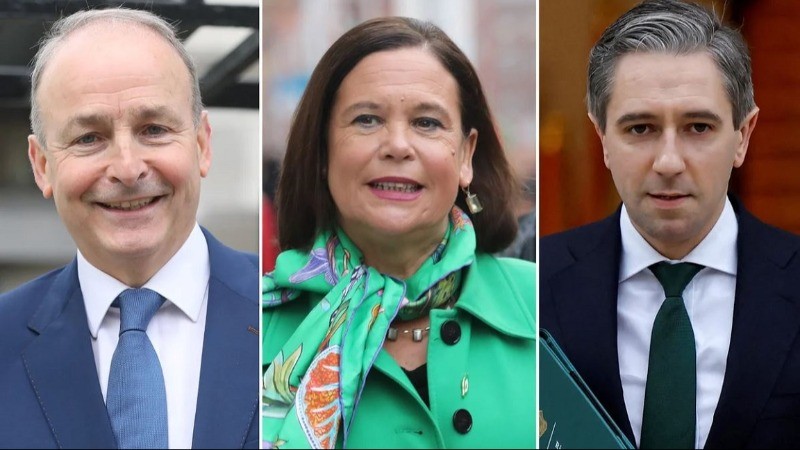
Ireland heads to the polls with a close contest expected among the country’s three major political parties—Fine Gael, Fianna Fáil, and Sinn Féin. Voters are deciding between another term for the current center-right coalition or a potential left-leaning government led by Sinn Féin, a party that has surged in popularity in recent years.
A Dead Heat in Opinion Polls
Recent opinion polls indicate a neck-and-neck race, with Fine Gael, led by Taoiseach Simon Harris, Fianna Fáil, led by Micheál Martin, and Sinn Féin each garnering around 20% of voter support. Key campaign issues include housing, the cost-of-living crisis, and immigration, leaving little to distinguish the parties’ platforms during a brief three-week campaign.
Economic Concerns and Sinn Féin's Rise
Fine Gael has cautioned that a Sinn Féin-led government could bring economic uncertainty, particularly if global challenges such as trade tariffs under another potential term for former U.S. President Donald Trump materialize. However, Sinn Féin remains a strong contender, with its first-preference vote share projected at 21.1%, marginally ahead of Fine Gael’s 21%, according to exit polls.
Fianna Fáil trails slightly at 19.5%, with second-preference votes split closely among the three.
Smaller Parties and Independents
The exit poll highlights the Green Party at 4%, Labour at 5%, the Social Democrats at 5.8%, People Before Profit-Solidarity at 3.1%, and Independents at 12.7%. Over 680 candidates are vying for 173 parliamentary seats, with the remaining seat reserved for the Ceann Comhairle (speaker).
Vote Counting Begins
Vote counting begins on Saturday morning and is expected to extend into the weekend. Some results from Ireland’s 43 constituencies may not be finalized until early next week. To secure a majority in the 174-seat Dáil, a party would need 88 seats, but no single party has fielded enough candidates to achieve this independently.
Coalition Challenges Ahead
The first meeting of the new Dáil is scheduled for December 18, but forming a government could take months. In 2020, it took four months for Fine Gael, Fianna Fáil, and the Green Party to reach a coalition agreement. Both Fine Gael and Fianna Fáil have already ruled out Sinn Féin as a coalition partner, suggesting complex negotiations lie ahead.
Key Political Players
Fianna Fáil and Fine Gael have traditionally dominated Irish politics, but their differences have narrowed over time, with both now viewed as center-right parties. Sinn Féin, led by Mary Lou McDonald since 2018, has sought to move past its historical association with the IRA and focus on housing and social issues. The party made significant gains in the 2020 election, winning 37 seats, and has since expanded its influence across Northern Ireland and Westminster.
Other parties contesting this election include Labour, the Social Democrats, PBP-Solidarity, Aontú, and the newly formed Independent Ireland.
With no party likely to secure a majority, coalition talks are set to dominate Ireland’s political landscape in the coming months. The outcome of this election will shape Ireland’s trajectory as it tackles pressing issues like housing and economic stability.